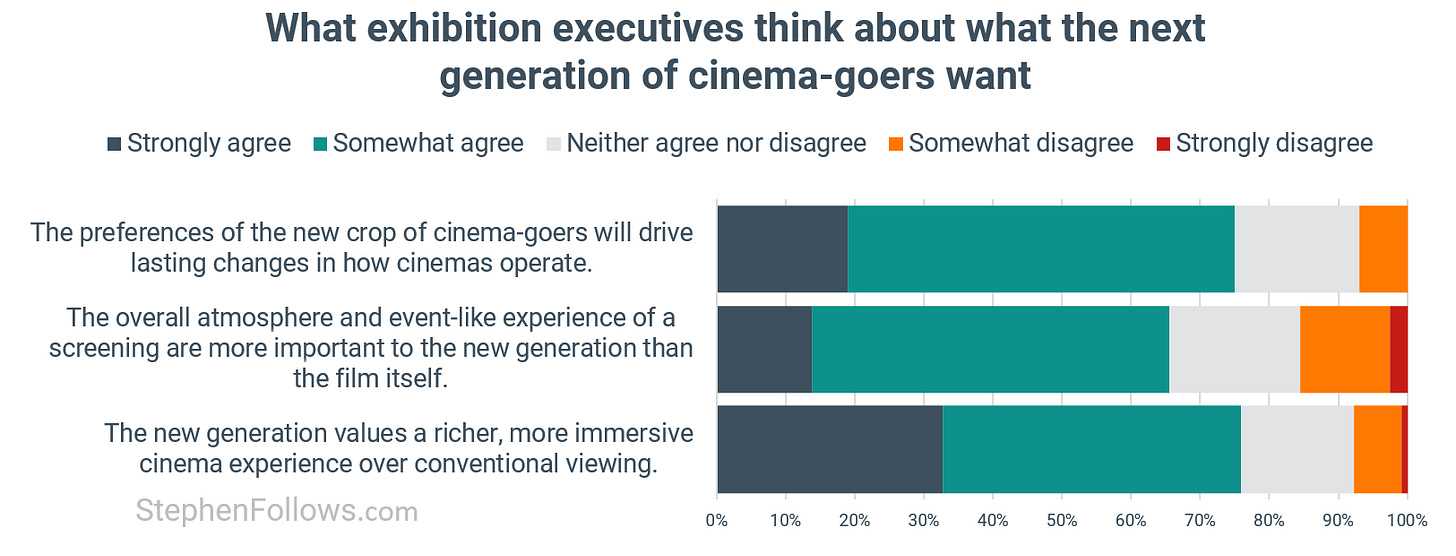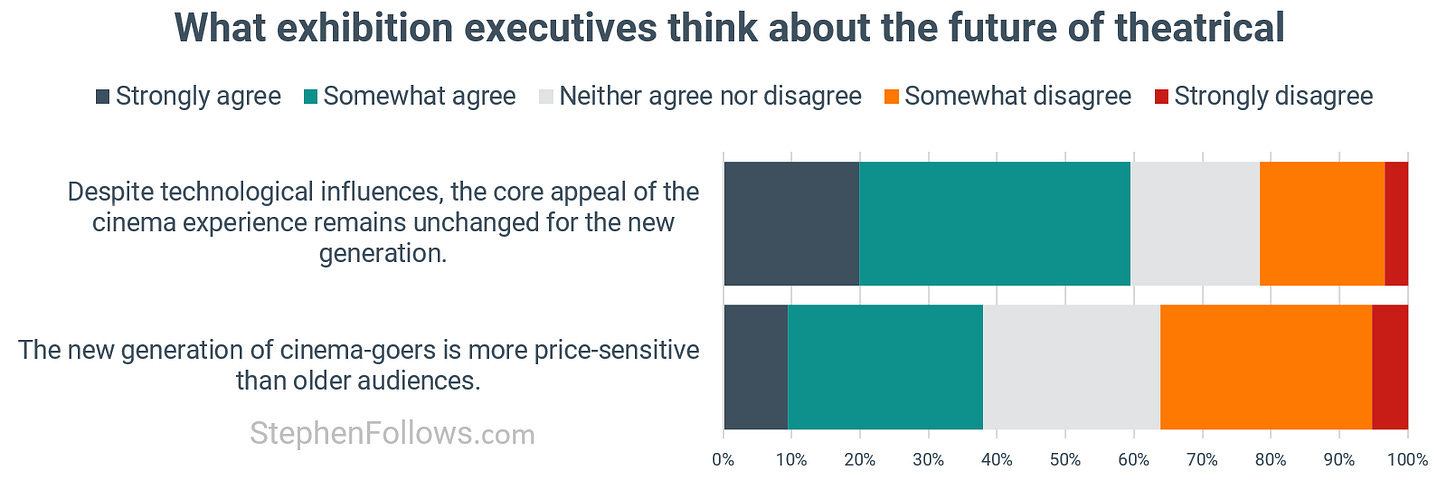What the exhibition sector thinks the next generation of cinema-goers wants
We asked 246 cinema owners and exhibition-affiliated professionals about the future of moviegoing and what younger audiences are demanding from the big screen experience
This is part three of my collaboration with Screendollars in which we spoke to 246 cinema owners and exhibition-affiliated film professionals. We quizzed them on a range of topics, and their answers were very revealing.
You can read the other parts here:
In this article I will focus on what our interviewees think of the next generation of cinema-goers.
Audience habits are changing
Every generation reshapes cinema in some way. But today’s shift feels more precarious as the habits that sustained theatrical exhibition for decades are no longer guaranteed.
Most professionals working in exhibition agree that younger audiences are driving lasting changes to how cinemas operate. They are seen as more price-sensitive, more focused on atmosphere, and less attached to conventional cinema norms.
The strongest point of agreement is that the overall experience matters more to younger viewers than the film itself. Two-thirds of exhibition professionals agreed that the “event-like” feel of a screening now outweighs content.
This aligns with findings from the Global Cinema Survey, which revealed that 95% of respondents prefer watching movies in cinemas over streaming platforms, with a notable demand for action/adventure and comedy films.
Our survey also found widespread agreement that the preferences of these audiences will reshape operations. From programming and seating to presentation and policies, cinemas are expected to adapt or risk becoming irrelevant.
A recent Fandango study found that 74% of audiences say Premium Large Formats (e.g. IMAX or Dolby) improve their experience, and themed collectibles such as popcorn buckets are increasingly seen as part of the draw.
Who’s to pay for the cost of the upgrades?
Just over a third of exhibition professionals feel that younger cinema-goers are more price-conscious than their older counterparts. A further third weren’t sure and just under a third didn’t think so.
The average ticket price in the US rose by almost 25% between 2020 and 2024. Price sensitivity is also affected by broader expectations shaped by streaming, gaming, and other forms of digital entertainment where content is abundant and often included in flat-rate subscriptions.
While the fears may be front of mind for exhibition execs, other research suggests it’s not a major problem just yet. A CGF survey of 68,000 people across 15 countries found that 72% of cinema-goers agree or strongly agree that a visit to the cinema is good value for money.





